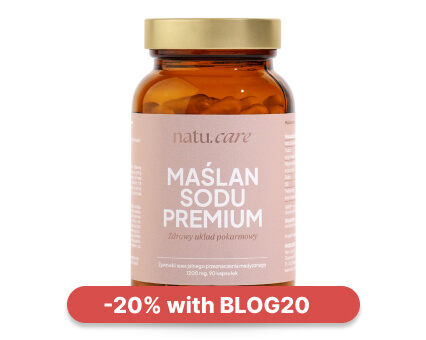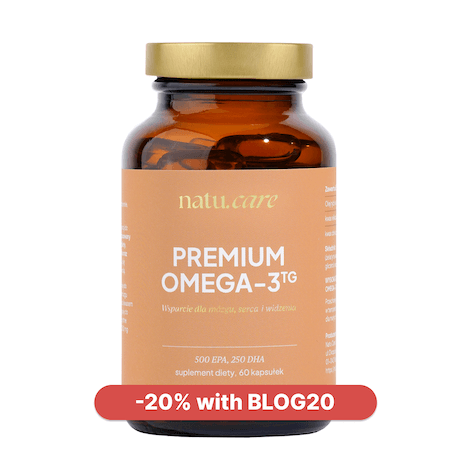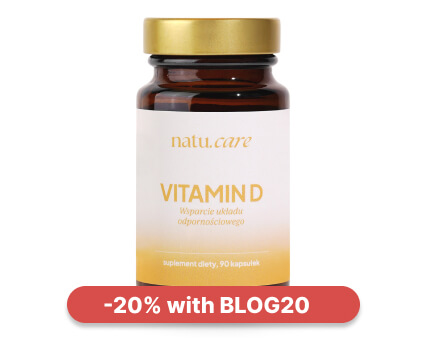Selenium - what it is, properties, dosage, supplementation
Selenium reduces the risk of cancer, protects against heart disease and is also responsible for thyroid health.


Learn more about our editorial process
.

Learn more about our editorial process
.

Learn more about our editorial process
.

Learn more about our editorial process
.
Why you can trust us
Articles on Natu.Care are written based on scientific research, data from government websites and other reliable sources. The texts are written in cooperation with doctors, nutritionists and other health and beauty experts. Articles are reviewed before publication and during significant updates.
.Learn more about our editorial process
.Information about advertisements
Content on Natu.Care may contain links to products from the sale of which we may receive a commission. When creating content, we adhere to high editorial standards and take care to be objective about the products discussed. The presence of affiliate links is not dictated by our partners, and we select the products we review ourselves completely independently.
.Learn more about our terms and Conditions
.Selenium is responsible for the formation of DNA, protects cells from infections, and has antioxidant properties. Furthermore, it prevents heart disease and strengthens the immune system. What are the other functions of selenium? Check them out!
Nause of nausea, vomiting or headaches. Nothing pleasant, right? These are selected symptoms of selenium deficiency in the body. This mineral has numerous valuable properties, which is why a lack of it in the body is dangerous. It is no different to an excess, which we must not lead to either. How does selenium work? What are its sources in the diet? What are the manifestations of deficiency and excess? The answers to these questions are just the tip of the iceberg of knowledge you will find below!
From this article you will learn:
- What selenium is and how it works .
- What are the intake standards for selenium and how you should dose it .
- In which products does this mineral occur naturally .
- Whether you are at risk of selenium deficiency and how to prevent it .
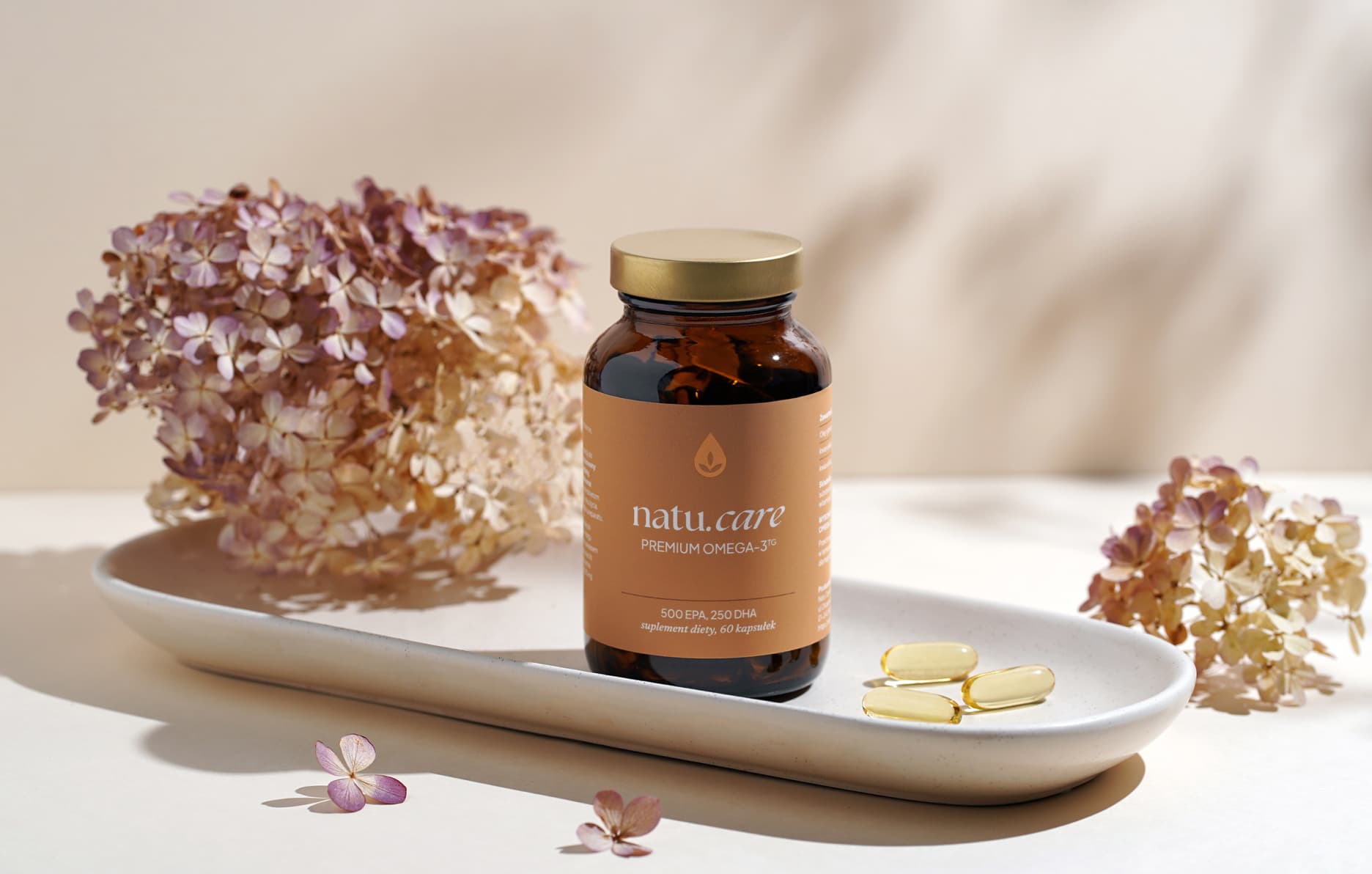
Sprawdź, za co pokochały go tysiące klientek Natu.Care Premium Omega-3ᵀᴳ -15% z kodem BLOG15
Natu.Care Omega-3ᵀᴳ Premium
Natu.Care Omega-3ᵀᴳ Premium dla zdrowia serca, mózgu i odporności. Najlepsza przyswajalność. Optymalna dawka 750 mg. Przebadana przez niezależne laboratorium.
Zobacz więcej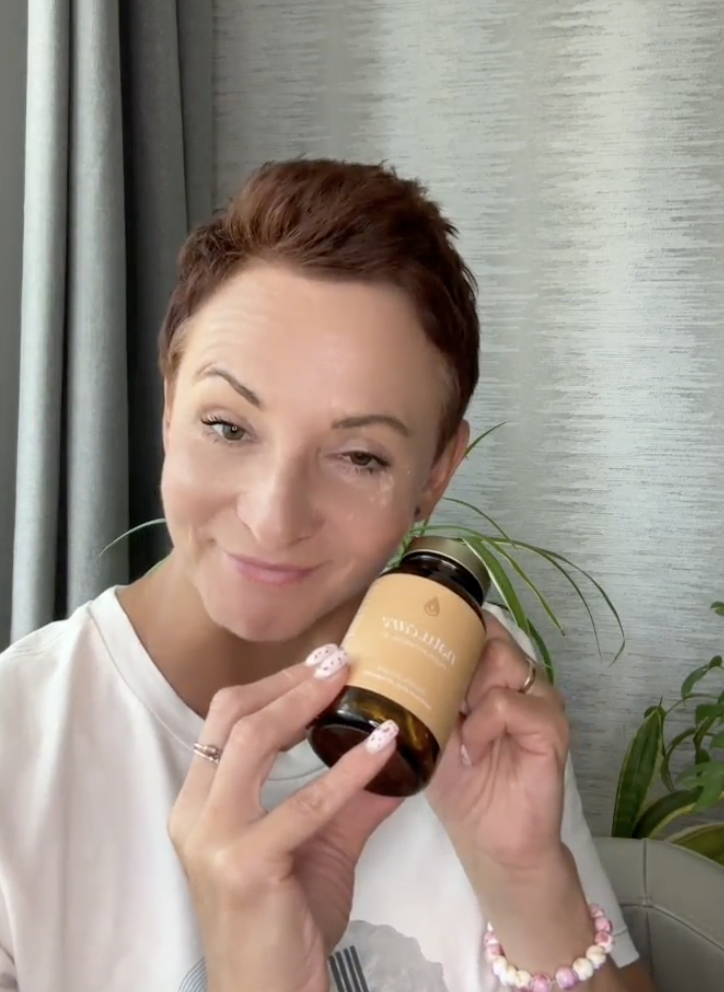
Produkt ma super skład, transparentną etykietę i co dla mnie jest ważne – małe kapsułki do połknięcia. Nie ma też nieprzyjemnego efektu odbijania rybą, który miałam spożywając inne produkty. Widzę znaczną poprawę odporności. Polecam!@Kasia P.
See also:
- Zinc in tablets [properties and dosage + ranking] .
- Magnesium [properties + deficiency symptoms + best sources] .
- Best magnesium [ranking + expert opinion] .
- Potassium [deficiency + standard + what it's in]
- Zinc [properties + deficiency + excess] .
- Chromium [properties + use + supplementation] .
- Iron [properties + sources + deficiency] .
- Iodine [properties + dosage + deficiency symptoms]
- MSM or organic sulfur [what it is and properties + dosage]
- Copper [properties, excess, deficiency] .
What is selenium?
.
Selenium is a trace mineral (our body needs it in small amounts) that is a component of enzymes and proteins. We store most selenium in muscle tissue. However, the highest concentration of this mineral is in the thyroid gland. Sources of selenium are mainly fish, beef, turkey or chicken.
Selenium is a microelement that is extremely important for our body. Without selenium, many metabolic processes would not exist. It is the first step for antioxidant processes, i.e. neutralising free radicals..
 .
.
Julia SkrajdaDietitian
.What are the types of selenium?
.
There are two types of seleniumand: organic (selenomethionine and selenocysteine) and inorganic (selenate and selenite). Both forms are good dietary sources of selenium. Organic selenium, however, has better bioavailabilityand.
Selenium is an element found in soil and water. This is how it gets into food. Due to its low levels in soils and plant tissues, selenium deficiencies can often be found in the population.
 .
.
Julia SkrajdaDietitian
.Selenium - action
.
The phrase 'trace' to describe selenium should not confuse us. Despite the fact that our body does not need large deposits of this mineral, it is very important for health. How does selenium work?
Antioxidant activity
.
Antioxidants are compounds that fight free radicals. Excess free radicals lead to oxidative stressand that has been linked to a number of diseases (Alzheimer's disease, stroke or premature ageing).
Selenium acts as an antioxidant, that is, it reduces oxidative stressand. The mineral protects the body's healthy cells from damage.
Reduces the risk of heart disease
.
Adequate levels of selenium in the body may support heart health. Research suggests, that 50% more selenium in the body results in a 24% reduction in heart disease riskand. Furthermore, other trials indicate that selenium supplementation reduces inflammatory C-reactive protein concentrationsand.
Reduces cancer risk
.
Selenium may reduce the risk of certain cancers. A review of 69 studies (on more than 360,00 people) suggested that high levels of selenium were associated with a lower risk of breast, prostate, lung, stomach or oesophageal cancerand. This effect was associated with selenium intake along with diet, not supplements.
It is worth noting that selenium supplementation may reduce the side effects of chemotherapyand. Studies indicate that taking selenium supplements improves overall quality of life and reduces symptoms of diarrhoea in women with cervical cancer.
Prevent neurodegenerative diseases
.
Selenium may reduce the risk of developing selected neurodegenerative diseases. Studies suggest that Alzheimer's patients have lower levels of selenium in their bloodand. Furthermore, other tests have shown that antioxidants (such as selenium) can positively affect memory in Alzheimer's patientsand.
Selenium has been shown to have positive effects on mood changes like anxiety, confusion and aggression attacks. Therefore, it may be helpful for Alzheimer's or dementia. Furthermore, selenium may slow down the development of neurodegenerative diseases..
 .
.
Julia SkrajdaDietitian
..
May reduce asthma symptoms
.
Asthma has been linked to increased levels of oxidative stress in the body, which selenium can preventand. Research suggests that asthma patients with higher levels of this mineral in their bodies, have better lung functionand. Nevertheless, further tests are needed to confirm the role of selenium in the treatment of asthma.
Selenium is a component of iodothyronine deiodinase, showing active actions on the gland that is the thyroid gland. It is involved in the conversion of the hormones FT3 and FT4. It is a marker for diseases such as hashimoto's or hypothyroidism, as well as Graves' disease..
 .
.
Julia SkrajdaDietitian
.How else does selenium work?
.- Responsible for thyroid hormone metabolismand. .
- Prevents progression of HIV to AIDS . .
- Provides positive effects on the immune system . .
- Promotes the function of the reproductive system . .
.
Selenium plays a very important role in people with thyroid problems. This mineral is involved in the production and breakdown of thyroid hormones. Selenium also supports the proper functioning of our immune system..
Ula Kawalecdietitian
Natu.Care Collagen Premium 5000 mg, mango & passion fruit

- Collagen content: 5000 mg marine collagen hydrolysate
- Additional active ingredients: vitamin C, low molecular weight hyaluronic acid (and L-theanine and coenzyme Q10 in cocoa flavoured collagen or vitamin A and vitamin E in mango–passion fruit flavoured collagen)
- Form: powder sachets
- Dose: 1 sachet per day
- Sufficient for: 30 days
Product description
Fish collagen from the Natu.Care brand in a dose of 5000 mg, based on certified ingredients of the best quality. Regular supplementation will positively influence the appearance of the skinóry, hairów and nails – they will be rebuilt and strengthened from the inside.
In addition to collagen, which is valuable for health and beauty, it also offers other active ingredients that help to maintain a youthful complexion, shiny hair and strong nails.
The formula contains a sufficient portion of the active ingredient to positively affect joints, the musculoskeletal system and immunity.
Natu.Care Premium Collagen is available in two flavours – Cacao Bloom and Rise&Shine. Both formulas are based on the following active ingredients: marine collagen hydrolysate, wild roseóbud extract and hyaluronic acid.
Additionally, Cacao Bloom contains natural L-theanine, coenzyme Q10 and defatted Dutch cacao. Rise&Shine instead contains vitamin E and vitamin A.
These are the best collagens in the world.
These best fish collagens on the market also rós taste – Cacao Bloom is a treat for chocolate lovers. Rise&Shine will appeal to those whoólike the refreshing taste of mangoófruit and passion fruit.
Pros and cons
Pros:
- Vitamin C supports the body's collagen production, enhancing its effectiveness.
- An effective dose of hyaluronic acid, which additionally supports skin hydration and joint health.
- Fish collagen absorbs 50% better. Additionally, the manufacturer specifies the fish species it is sourced from (Atlantic cod).
- The composition has been tested by the independent and accredited J.S. Hamilton laboratory.
- MSC (Marine Stewardship Council) quality certification, which confirms that the collagen source supports sustainable fishing practices.
Cons:
- None.
Additional information
Natu.Care's fish collagen receives praise for its delicious taste. You won't find the fishy aftertaste that often comes through in other collagens. Plus, you have two tasty flavors to choose from: cocoa and mango-passionfruit.
Active ingredients like coenzyme Q10, hyaluronic acid, and natural L-theanine provide anti-inflammatory and antioxidant benefits while slowing down aging processes.
User review
Super, after about 6 weeks of use, the skin on my face became noticeably firmer. Wonderful taste.
Ania ZalewskaNatu.Care customer
Natu.Care Premium collagen 10 000 mg, mango-maracuja
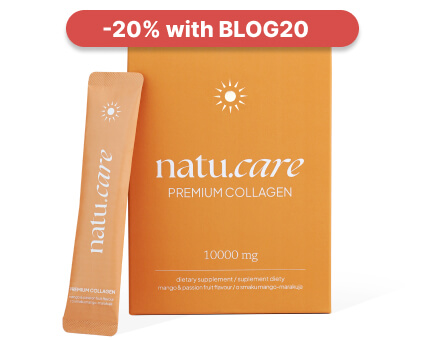
- Collagen content: 10,000 mg marine collagen hydrolysate
- Additional active ingredients: vitamin C, low molecular weight hyaluronic acid (and L-theanine and coenzyme Q10 in cocoa flavoured collagen or vitamin A and vitamin E in mango–passion fruit flavoured collagen)
- Form: powder sachets
- Dose: 1 sachet per day
- Sufficient for: 30 days
Product description
One of the strongest collagens on the market, whichós provides as much as 10,000 mg in a daily serving. This allows the formula to effectively support the condition of the skin, hair and nails.
With this supplement, you will support your beauty, which will allow you to visually stop the ageing process and feel a second youth!
Natu.Care Collagen Premium 10 000 mg comes in two flavours – cherry and mango-maracuja. Both formulas have the same product backbone – collagen, hyaluronic acid and vitamin C.
In the cherry version you additionally find glucosamine, chondroitin and Indian frankincense resin extract. Mango-maracuja, on the other hand, contains vitamin E and vitamin A.
Pros and cons
Pros:
- Tested collagen formula – SeaGarden, whose effects have been confirmed in clinical studies.
- Effective dose of hyaluronic acid, additionally moisturizing the skin and positively impacting joint health.
- Vitamin C supports the body’s natural collagen production.
- The composition has been tested by the independent and accredited J.S. Hamilton laboratory.
- The product has an MSC (Marine Stewardship Council) quality certification – the collagen source supports sustainable fishing practices.
Cons:
- None.
Additional information
Users praise Natu.Care Collagen Premium for the easy dissolvability of the powder.
User review
I noticed a significant improvement in my skin texture after a few weeks of taking collagen regularly. My complexion is now as soft as velvet!
Natu.Care Collagen Premium 10000 mg, cherry

- Collagen content: 10,000 mg of hydrolyzed bovine collagen
- Additional active ingredients: vitamin C, low molecular weight hyaluronic acid, glucosamine, chondroitin, extract of Indian frankincense resin (boswellia serrata)
- Form: powder sachets for drinking
- Serving: 1 sachet per day
- Lasts for: 30 days
Product description
One of the strongest collagens on the market, providing as much as 10,000 mg per daily serving. This product can effectively support the condition of joints, skin, hair, and nails.
With this supplement, you will support your skeletal and joint system as well as your beauty, helping you visually halt the aging process and feel rejuvenated!
Pros and cons
Pros:
- The daily portion of collagen is very large – as much as 10,000 mg.
- Proven collagen formula – COLLinstant, whose effectiveness has been confirmed in clinical studies.
- Effective dose of hyaluronic acid, which additionally moisturizes the skin and positively affects joint health.
- Vitamin C supports the body's natural collagen production.
- Glucosamine is a fundamental building block of compounds found in joint cartilage and a component of collagen that gives elasticity to connective tissue in tendons.
- Chondroitin is a natural component found in the human body, mainly in cartilage. This large molecule (mucopolysaccharide) has the ability to absorb water, which helps maintain the elasticity and resilience of cartilage.
- Frankincense resin extract supports blood circulation and joint mobility and reduces their stiffness. It may help alleviate inflammatory conditions.
- The composition has been tested by the independent and accredited J.S. Hamilton laboratory.
Cons:
- None.
Additional information
Users praise Natu.Care Collagen Premium for the easy dissolving of the powder.
Premium Sodium Butyrate
Product description
Premium Sodium Butyrate is a natural support for your digestive system. With a high dose of butyric acid (940 mg), it supports the regeneration of the intestinal mucosa, improving gut health and function, and aids in the absorption of nutrients. By taking care of your intestines, you're taking care of the health of your entire body.
Studies involving people suffering from irritable bowel syndrome confirm that sodium butyrate is ideal for supporting issues related to bacterial flora imbalances (for example, after antibiotic therapy), constipation and diarrhea, inflammation of the intestinal mucosa, or a diet low in fiber.
Premium Sodium Butyrate capsules are made using the innovative DRcaps® technology. This guarantees that the active ingredients in the product are protected from the destructive effects of stomach acids and digestive enzymes. As a result, we can be sure that the beneficial ingredients are released in the small intestine and are fully absorbed by our body.
Premium Sodium Butyrate from Natu Care is 100% tested, and its composition contains only the highest quality raw materials.
Pros and cons
Pros:
- Supports digestive system function
- Helpful for various gastrointestinal conditions, including IBS
- High dose of butyric acid in each capsule
- Eco-friendly, clean, and tested composition
- Free from added sugar, gluten, GMOs, and lactose
- Innovative capsule technology - DRcaps
Cons:
- None
Additional Information
Take 3 capsules daily at any time of the day, preferably with a meal. Swallow the capsules whole with water.
Premium Sodium Butyrate is intended for adults.
The product should be used under medical supervision.
User review
I've been using the product for 2 weeks. My stomach feels lighter, and my digestion has improved. I recommend it.
Natu.Care Premium Magnesium + Vitamin B6
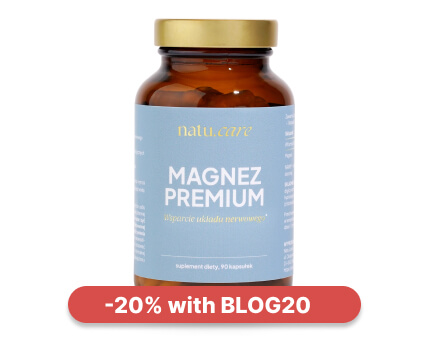
- Magnesium content per day: 305 mg
- Additional active ingredients: Vitamin B6 (2.1 mg)
- Form: capsules
- Serving size: 3 capsules per day
- Sufficient for: 30 days
Product description
The Premium Magnesium + Vitamin B6 dietary supplement is a comprehensive product that combines three organic forms of magnesium (citrate, malate, and diglycinate) and vitamin B6 in highly absorbable forms.
Magnesium is an essential mineral without which our bodies cannot function properly. It supports the immune, nervous, and muscular systems, maintains electrolyte balance, and is involved in cell division and the regulation of mental functions.
Research shows that magnesium supplementation is even more effective when accompanied by vitamin B6, which is included in our product. Vitamin B6 is responsible for the proper functioning of the nervous and immune systems, as well as the proper functioning of the heart.
If you want to safely get rid of feelings of fatigue, concentration problems, hair loss, muscle cramps, trembling, or irritability, reach for Premium Magnesium from Natu.Care, tested by the independent, certified laboratory J.S. Hamilton Poland.
Pros and cons
Pros
- Supports the proper functioning of the nervous and immune systems.
- Reduces feelings of fatigue and tiredness.
- Maintains proper psychological functions.
- The purity of the ingredients (free from anti-caking agents, artificial fillers, and additives such as titanium dioxide, microcrystalline cellulose, talc, magnesium stearate, and silicon dioxide) has been confirmed by laboratory tests.
- High absorption of ingredients.
- Soft capsules that are easy to swallow.
- Suitable for vegetarians and vegans.
Cons
- None.
Additional information
Take with a meal, 3 capsules per day.
The capsules should be taken with at least 250 ml of water.
If you have trouble sleeping, it is advisable to take 1 capsule in the morning and 2 capsules in the evening, no later than 4 hours before bedtime.
Avoid combining with products high in calcium (milk, yogurt, cheese), as this may negatively affect magnesium absorption.
Pregnant and breastfeeding women should consult a doctor before starting supplementation.
User review
I’m very impressed with the speed of delivery. The product itself is of high quality and absorbs well. After two weeks of supplementation, I’ve noticed a significant improvement in muscle recovery, especially during periods of intense training. I highly recommend it!
Product description
The dietary supplement contains omega-3ᵀᴳ, or omega-3 acids in the form of trójglyceridesów. Scientific studies suggest that this form of fatty acidsós up to 2 times better absorbed than the estersós present in many dietary supplements on the market. This means that you are assured of their effectiveness and of supplying yourself with valuable omega acids.
Fatty acids omega-3 are derived from wild anchovy oil. It is a rich source of healthy fats that are essential for the health of the cardiovascular, immune and nervous systems, as well as the proper function of vision, joints muscles.
Scientific research suggests that wild anchovies are a good source of healthy fats.
Scientific research also suggests that an adequate intake of omega-3 fatty acidsós protects against and supports the treatment of depression and anxiety disorders. In addition, omega-3s influence the hydration and appearance of the skinóry and support healthy sleep.
.
The formula contains a total of 750 mg of EPA+DHA acidsós, which is three times higher than the recommended minimum of 250 mg for the Polish population. Omega-3 TG Premium has studies indicating that its TOTOX is 9, which is a very good result.
Supplementation of omega-3 fatty acidsóis recommended for anyone who does not eat 1–2 portions (approximately 300 g) of oily fish per week. Children during growth, seniors, physically active people, vegans and vegetarians, as well as patients undergoing cardiovascular treatment and prevention of heart disease also have an increased need.
Pros and cons
The dietary supplement contains omega-3ᵀᴳ, or omega-3 acids in the form of trójglyceridesów. Scientific studies suggest that this form of fatty acidsós up to 2 times better absorbed than the estersós present in many dietary supplements on the market. This means that you are assured of their effectiveness and of supplying yourself with valuable omega acids.
Fatty acids omega-3 are derived from wild anchovy oil. It is a rich source of healthy fats that are essential for the health of the cardiovascular, immune and nervous systems, as well as the proper function of vision, joints muscles.
Scientific research suggests that wild anchovies are a good source of healthy fats.
Scientific research also suggests that an adequate intake of omega-3 fatty acidsós protects against and supports the treatment of depression and anxiety disorders. In addition, omega-3s influence the hydration and appearance of the skinóry and support healthy sleep.
.
The formula contains a total of 750 mg of EPA+DHA acidsós, which is three times higher than the recommended minimum of 250 mg for the Polish population. Omega-3 TG Premium has studies indicating that its TOTOX is 9, which is a very good result.
Supplementation of omega-3 fatty acidsóis recommended for anyone who does not eat 1–2 portions (approximately 300 g) of oily fish per week. Children during growth, seniors, physically active people, vegans and vegetarians, as well as patients undergoing cardiovascular treatment and prevention of heart disease also have an increased need.
Additional information
The dietary supplement contains omega-3ᵀᴳ, or omega-3 acids in the form of trójglyceridesów. Scientific studies suggest that this form of fatty acidsós up to 2 times better absorbed than the estersós present in many dietary supplements on the market. This means that you are assured of their effectiveness and of supplying yourself with valuable omega acids.
Fatty acids omega-3 are derived from wild anchovy oil. It is a rich source of healthy fats that are essential for the health of the cardiovascular, immune and nervous systems, as well as the proper function of vision, joints muscles.
Scientific research suggests that wild anchovies are a good source of healthy fats.
Scientific research also suggests that an adequate intake of omega-3 fatty acidsós protects against and supports the treatment of depression and anxiety disorders. In addition, omega-3s influence the hydration and appearance of the skinóry and support healthy sleep.
.
The formula contains a total of 750 mg of EPA+DHA acidsós, which is three times higher than the recommended minimum of 250 mg for the Polish population. Omega-3 TG Premium has studies indicating that its TOTOX is 9, which is a very good result.
Supplementation of omega-3 fatty acidsóis recommended for anyone who does not eat 1–2 portions (approximately 300 g) of oily fish per week. Children during growth, seniors, physically active people, vegans and vegetarians, as well as patients undergoing cardiovascular treatment and prevention of heart disease also have an increased need.
Expert opinion
The dietary supplement contains omega-3ᵀᴳ, or omega-3 acids in the form of trójglyceridesów. Scientific studies suggest that this form of fatty acidsós up to 2 times better absorbed than the estersós present in many dietary supplements on the market. This means that you are assured of their effectiveness and of supplying yourself with valuable omega acids.
Fatty acids omega-3 are derived from wild anchovy oil. It is a rich source of healthy fats that are essential for the health of the cardiovascular, immune and nervous systems, as well as the proper function of vision, joints muscles.
Scientific research suggests that wild anchovies are a good source of healthy fats.
Scientific research also suggests that an adequate intake of omega-3 fatty acidsós protects against and supports the treatment of depression and anxiety disorders. In addition, omega-3s influence the hydration and appearance of the skinóry and support healthy sleep.
.
The formula contains a total of 750 mg of EPA+DHA acidsós, which is three times higher than the recommended minimum of 250 mg for the Polish population. Omega-3 TG Premium has studies indicating that its TOTOX is 9, which is a very good result.
Supplementation of omega-3 fatty acidsóis recommended for anyone who does not eat 1–2 portions (approximately 300 g) of oily fish per week. Children during growth, seniors, physically active people, vegans and vegetarians, as well as patients undergoing cardiovascular treatment and prevention of heart disease also have an increased need.
Natu.Care Vitamin D 2000 UI
Product description
Vitamin D plays a crucial role in our health and well-being. It affects calcium and phosphate metabolism, which translates to healthy bones and teeth. It also helps regulate the immune system, and studies indicate its influence on the functioning of the nervous system.
Vitamin D, although called a “vitamin,” is actually a prohormone that our body produces on its own, primarily under the influence of sunlight. Unfortunately, our modern lifestyle contributes to deficiencies of this essential vitamin. Working in enclosed office buildings, using (necessary!) SPF creams, and covering the body with clothing all make it very difficult, if not impossible, to obtain adequate levels of vitamin D from sunlight. This is why appropriate, year-round supplementation is so crucial.
Vitamin D from Natu.Care is a well-tested vitamin D3 suspended in safflower oil, a plant known for its numerous health benefits. The convenient, easy-to-swallow capsule will make supplementation a part of your daily, healthy routine, improving your overall well-being.
Pros and cons
Pros:
- Ensures proper functioning of the immune system
- Supports the maintenance of healthy bones and teeth
- Maintains proper heart, kidney, and muscle function
- Tested by an independent, certified laboratory
- Convenient and easy-to-swallow capsule
- Clean composition - free from added sugar, gluten, GMOs, lactose, and without preservatives or colorants
Cons:
- None.
Additional Information
Pregnant women and breastfeeding mothers should consult a doctor before using the product. This dietary supplement is intended for a healthy adult population up to the age of 75.
Collagen Booster - Glow Stories
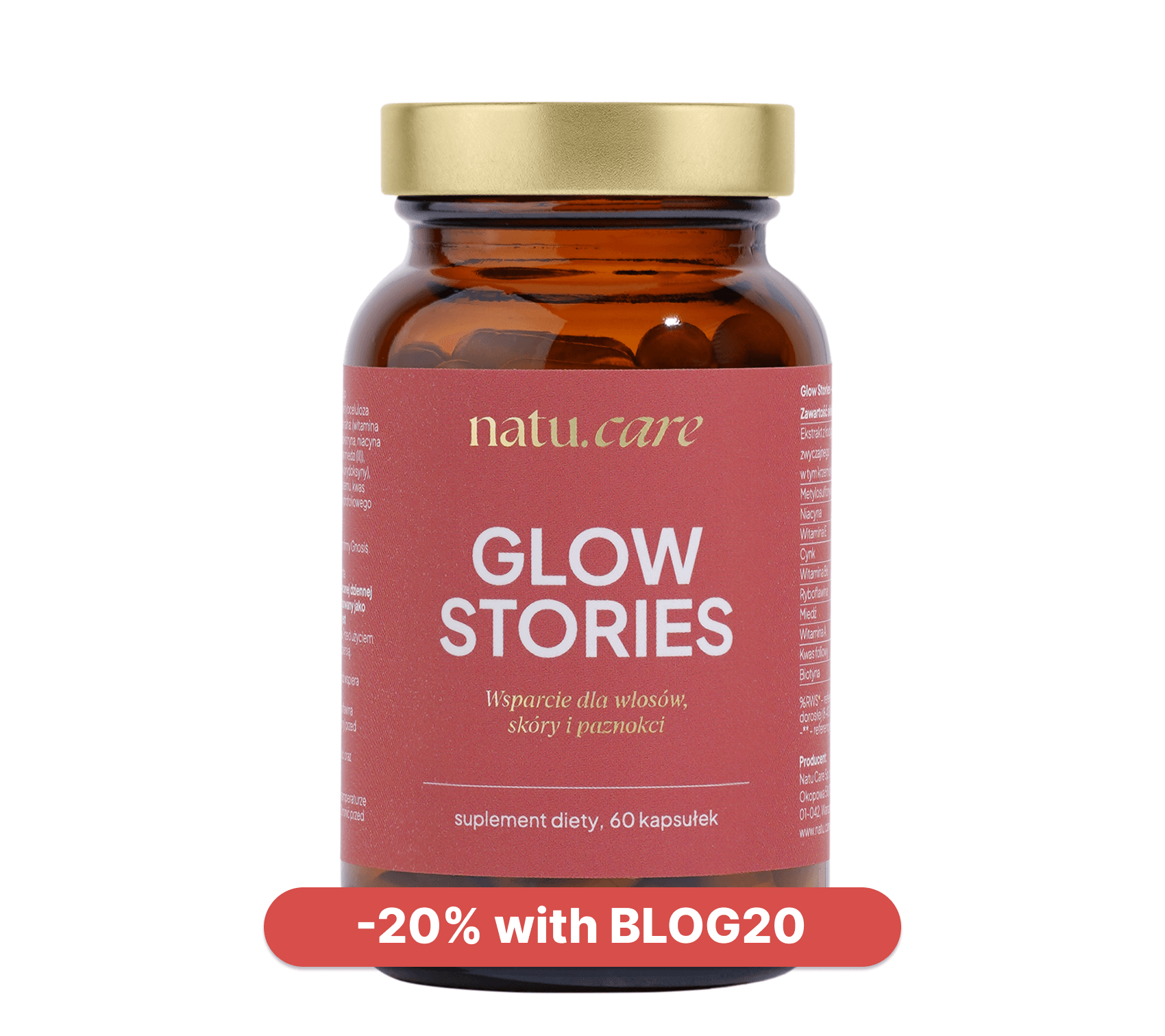
- Active ingredients: bamboo shoot extract, Quatrefolic®, L-Methionine, L-cysteine, vitamin E, vitamin A, niacin (vitamin B3), vitamin B6, vitamin B2 (riboflavin), biotin, zinc, copper
- .
- Form: capsules
- .
- Dose: 1 capsule per day
- .
- Sufficient for: 60 days
- .
Product description
A dietary supplement containing vitamins, minerals and plant extracts thatósupport the skinóhand, hair and nails. The product is especially distinguished by the form of folate – it is Quatrefolic, whichós absorbed very well and is natural.
In addition to valuable vitamins and minerals, such as vitamin A, E, B3, B2 and biotin, the formula contains bamboo shoot extract, whichóry further enhances your beauty.
Pros and cons
A dietary supplement containing vitamins, minerals and plant extracts thatósupport the skinóhand, hair and nails. The product is especially distinguished by the form of folate – it is Quatrefolic, whichós absorbed very well and is natural.
In addition to valuable vitamins and minerals, such as vitamin A, E, B3, B2 and biotin, the formula contains bamboo shoot extract, whichóry further enhances your beauty.
Additional information
A dietary supplement containing vitamins, minerals and plant extracts thatósupport the skinóhand, hair and nails. The product is especially distinguished by the form of folate – it is Quatrefolic, whichós absorbed very well and is natural.
In addition to valuable vitamins and minerals, such as vitamin A, E, B3, B2 and biotin, the formula contains bamboo shoot extract, whichóry further enhances your beauty.
Selenium - dosage
.
The dosage of selenium should be adjusted according to our needs. Depending on our age, we need different doses of this mineral. Find out how much selenium you and those close to you need per day.
Recommended daily doses of selenium
.
|
Age . |
Recommended daily intake of selenium* . |
|
0-6 months |
15 mcg |
|
7-11 months |
20 mcg |
|
1-3 years |
20 mcg |
|
4-9 years |
30 mcg |
|
10-12 years |
40 mcg |
|
>13 years |
55 mcg |
The requirement for selenium increases during pregnancy to 60 mcg. Breastfeeding women need even more of this mineral - 70 mcg.
Although selenium is important for the health of the body, moderation is important. What are the healthy dosage limits for this mineral?
.
Maximum daily dose of selenium
. .
|
Age . |
Maximum daily intake of selenium . |
|
0-6 months* |
45 mcg |
|
7-12 months* |
60 mcg |
|
1-3 years |
90 mcg |
|
4-8 years |
150 mcg |
|
9-13 years |
280 mcg |
|
>14 years |
400 mcg |
*For the first few months of life, breast milk should be the only source of selenium for infantsand
Selenium - in which products does it occur?
.
Selenium can be found in products such as fish, offal and seafood. Would you like to prepare a dish full of selenium? Check out the table with the 10 richest products in seleniumand.
.
Cooked lamb liver
.
116 mcg
.
|
Product . |
Selenium content per 100 grams . |
|
Brazil nuts . |
1920 mcg . |
|
Milled mustard seeds |
208 mcg . |
|
Cooked oysters |
154 mcg . |
|
Cooked lamb's liver |
|
|
Cooked tuna |
108 mcg . |
|
Cooked octopus |
89.6 mcg |
|
Cooked lobster . |
73.1 mcg |
|
Cooked swordfish |
68.5 mcg |
|
Preserved anchovies |
68.1 mcg . |
|
Cooked mussels |
64 mcg |
Selenium is mainly found in products such as meat, cereals, dairy products, some vegetables (white cabbage, broccoli, onions) and Brazil nuts..
 .
.
Julia SkrajdaDietitian
..
Selenium deficiency
.
Selenium deficiency affects between 500 million and up to one billion people worldwideand. This means that one in eight people among your relatives or family may be struggling with this problem. What leads to selenium deficiency?
Causes of selenium deficiency:
- improper dietand, .
- alcoholic disease , .
- smoking addiction , .
- taking birth control pills ,
- inflammatory bowel disease , .
Selenium deficiency can lead to arthritis, cirrhosis, thyroid disease, cardiopathy, macrocytosis, and in extreme cases even cancer (mainly of the intestines, liver or thyroid).
 .
.
Julia SkrajdaDietitian
.Symptoms
.
Selenium deficiency can lead to a number of symptoms. Which ones are the most common?"
Symptoms of selenium deficiencyand:
- fatigue, .
- muscle aches, .
- hair loss, .
- deterioration of mood, .
- immune system problems, .
- worse fertility in men and women, .
Symptoms of selenium deficiency are mainly muscle pain, impaired concentration and fatigue..
Ula Kawalecdietitian
Are you experiencing these symptoms in yourself? Make an appointment for a consultation with your doctor or blood tests.
Effects
.
Being negligent of the symptoms mentioned can result in serious health problems. What does untreated selenium deficiency lead to?"
Effects of selenium deficiencyand:
- thyroid diseases (undothyroidism or hypothyroidism, Hashimoto's disease, Graves-Basedow disease), .
- infertility, .
- cardiovascular disease, .
- deterioration of cognitive function, .
- Kashin-Beck disease (osteoarthritis), .
- Keshan's disease (cardiovascular disease), .
Selenium excess
.
Selenium excess occurs in cases of chronic or acute overdose of this mineral. It is most often led to by unreasonable supplementation.
We can experience selenium overdose both by overdosing on supplements and by consuming too much of this mineral with the diet. An overdose of selenium with food, however, is rare..
Ula Kawalecdietitian
An example of a dietary selenium overdose could be the overconsumption of, for example, Brazil nutsand. About 5-6 pieces consumed at once can result in excess selenium. What will we then experience?
- vomiting, .
- nausea, .
- fracture and discoloration of nails, .
- hair loss, .
- bad breath, .
- irritability, .
- fatigue, .
Excess selenium is very dangerous. It can result in chronic poisoning and even death. The dose of the supplement must be well chosen and must be adhered to..
 .
.
Julia SkrajdaDietitian
..
Effects
.
Both chronic and one-off selenium overdoses can lead to serious damage to the body. What conditions result in an excess of selenium?
.
Effects of excess seleniumand:
- myocardial infarction, .
- kidney failure, .
- heart failure, .
- nerve damage, .
There are several ways to check the concentration of selenium in the bodyand. One of the more popular ones is to check its serum levels. Selenium concentration can also be tested in the hair or nails.
Selenium - supplementation
.
Selenium can be purchased in several different formsand. It is found in multimineral supplements and multivitamin supplements. We can also find stand-alone selenium supplements on shop shelves. Selenium supplementation should only apply to those with deficiencies, following consultation with a doctor.
Selenium supplementation prevents the occurrence of cancer, inflammatory and immunological diseases..
 .
.
Julia SkrajdaDietitian
..
When to take selenium - morning or evening
.
Most experts say that selenium can be supplemented at any hour. However, some of them give examples of patients who experienced better results when taking selenium on an empty stomach. Such an action is advised against those with stomach problems.
On the web, there is a lack of reliable research on the best time to take selenium, so ask your doctor's opinion before starting supplementation.
Can zinc and selenium be combined?
.
Zinc and selenium are essential trace elements that are key to our health. However, taking them at the same time can negatively affect the absorption of these mineralsand. These are preliminary assumptions and further research is needed to confirm this claim.
Many supplements on the market contain both zinc and selenium. This is unacceptable, as these elements act antagonistically and therefore cancel each other out. Therefore, if you want your supplementation to have the desired effect, do not use selenium and zinc in parallel..
 .
.
Julia SkrajdaDietitian
.Can you overdose on selenium?
.
Selenium can be overdosedand. This condition manifests itself with the same symptoms that occur in excess. Furthermore, in extreme cases, an overdose of selenium can even result in death.
Selenium in pregnancy
.
Research suggests, that selenium deficiency during pregnancy can negatively affect the growth of the yet-to-be-born childand. Despite this, supplementation with high doses of this mineral during pregnancy is not advisable and can be hazardous to the health of the mother and foetus . It is then necessary to take 60 mcg of selenium daily with the diet.
Selenium is called the element of fertility. It is essential for the health of pregnancy. It also influences spermatogenesis (the process of maturation and sperm formation)and. This micronutrient is an important factor in the treatment of infertility, aiding the process of getting pregnant on the part of both the woman and the man..
 .
.
Julia SkrajdaDietitian
.Selenium and breastfeeding
.
Selenium is one of the components of human milkand. It is the only source of this mineral for newborn babies, so breastfeeding women should ensure adequate levels. During this period, you should provide your body with 70 mcg per day.
Selenium and alcohol
.
Selenium deficiency is common among alcohol addictsand. Most often, this deficiency can be made up by stopping alcoholic beverages and supplementing the diet with selenium-rich foods. Supplementation is rarely necessary.
Interactions of selenium with drugs
.
Selenium may react with selected medications. Take care of your health and check if you need to take special care.
Selen may interactand with:
- .
- niacin (vitamin B3),
- statins, .
- corticosteroids, .
- contraceptive pills, .
- medications used in chemotherapy, .
Note!
.Are you taking these or other medications? Under no circumstances supplement selenium on your own. Ask your doctor's opinion before you start taking this mineral.
See also:
- Thyroid tests [what to do + standards + results] .
- Blood tests [how often to perform + how to prepare] .
- Cortisol testing [norms and indications + where to perform]
- The liver [symptoms of diseases + how to care for it and what to avoid] .
- Fatty (greasy) liver [what it is + causes + symptoms] .
- Saturation [norms + test + symptoms of low saturation] .
- Pulse oximeter [standards + results + which one to choose]
- How to take care of your mental health during a period of depressed mood]
Summary
.
Remember:
.- Selenium is a trace mineral that is a component of enzymes and proteins.
- Selenium is a trace mineral that is a component of enzymes and proteins.
- Selenium has an antioxidant effect, prevents heart disease and also reduces the risk of cancer.
- Selenium is a trace mineral that is a component of enzymes and proteins.
- After the age of 13, you should be taking 55 mcg. .
- The most selenium will be provided to you by Brazil nuts. .
- Fatigue, muscle aches or hair loss are selected symptoms of selenium deficiency. .
- Excess selenium mainly leads to nausea, vomiting or irritability. .
- Lack of adequate selenium concentrations during pregnancy, can negatively affect fetal growth. .
- The consumption of large amounts of alcohol leads to selenium deficiency.
- Selenium can enter the body during pregnancy.
- Selenium may interact with selected medications. .
FAQ
.Is it worth supplementing with selenium?
.Selenium supplementation is necessary for those with known deficiencies and with an increased need. More selenium is useful for the elderly and those with thyroid disease.
Selenium plays a role in many metabolic processes and protection against oxidative stress. Its optimal dose also protects against the development of breast, prostate, liver, colorectal and lung cancers, so if you are a smoker, consider a safe selenium supplement.
.
Does selenium work for your hair?
.Yes, selenium has a positive effect on hair health and condition. It is essential for the production of enzymes that help to counteract cell damage in the hair follicles. Selenium is involved in the production of proteins that are important for strong, healthy hair. Selenium deficiency can lead to hair loss.
.Does selenium help the thyroid gland?
.Selenium is essential for the proper functioning of the thyroid gland, and selenium deficiencies can lead to the development of thyroid diseases such as Hashimoto's disease. Research suggests that selenium supplementation may benefit people with hypothyroidism, improving thyroid hormone levels and reducing inflammation.
Can selenium be combined with magnesium?
.You can take selenium together with magnesium. The combination of these elements lowers lipid concentrations in the body and also has an antioxidant effect. As a result, they will help protect your liver from hyperlipidaemia.
See also: Liver supplements - Ranking and advice
.What not to combine selenium with
.Do not combine selenium with vitamin B3, or niacin and supplements containing iron, copper or zinc, as they may interfere with selenium absorption. Additionally, selenium can affect the absorption of thyroid hormones, so - without consulting your doctor - do not combine selenium with thyroid medication. Selenium may also interact with contraceptive pills, corticosteroids, statins and drugs used during chemotherapy.
Does selenium affect weight loss?
.Selenium is not directly linked to weight loss, but it can help maintain normal levels of thyroid hormones, which control metabolism. Selenium deficiency leads to endocrine disruption, which can make it difficult to shed weight. Additionally, selenium helps protect against oxidative stress, which can cause inflammation and contribute to obesity and metabolic diseases.
How to test your body's selenium levels
.The best way to test selenium levels in the body will be to take a diagnostic blood test. Remember - blood needs to be taken on an empty stomach. Refrain from eating for at least 13 hours before the test. Eat a light supper and turn up for the test between 7 and 10 the following day. The price of selenium testing will vary from laboratory to laboratory - be prepared to spend around £120-160.
.Selenium quantitative testing should certainly be done by men undergoing treatment for infertility, as well as those suffering from depression, pancreatitis, asthma, cardiovascular disease and RA (rheumatoid arthritis) - all of which can lead to selenium deficiencies.
.
Sources
.See all
.Almohanna, H. M., Ahmed, A. A., Tsatalis, J. P., & Tosti, A. (2019). The Role of Vitamins and Minerals in Hair Loss: A Review. Dermatology and Therapy, 9(1), 51-70. https://doi.org/10.1007/s13555-018-0278-6
Betsy, A., Binitha, M., & Sarita, S. (2013). Zinc Deficiency Associated with Hypothyroidism: An Overlooked Cause of Severe Alopecia. International Journal of Trichology, 5(1), 40-42. https://doi.org/10.4103/0974-7753.114714
Cai, X., Wang, C., Yu, W., Fan, W., Wang, S., Shen, N., Wu, P., Li, X., & Wang, F. (2016). Selenium Exposure and Cancer Risk: An Updated Meta-analysis and Meta-regression. Scientific Reports, 6(1), Article 1. https://doi.org/10.1038/srep19213
De Luca, C., Mikhal'chik, E. V., Suprun, M. V., Papacharalambous, M., Truhanov, A. I., & Korkina, L. G. (2016). Skin Antiageing and Systemic Redox Effects of Supplementation with Marine Collagen Peptides and Plant-Derived Antioxidants: A Single-Blind Case-Control Clinical Study. Oxidative Medicine and Cellular Longevity, 2016, 4389410. https://doi.org/10.1155/2016/4389410
de Wilde, M. C., Vellas, B., Girault, E., Yavuz, A. C., & Sijben, J. W. (2017). Lower brain and blood nutrient status in Alzheimer's disease: Results from meta-analyses. Alzheimer's & Dementia: Translational Research & Clinical Interventions, 3(3), 416-431. https://doi.org/10.1016/j.trci.2017.06.002
Dorea, J. G. (2002). Selenium and breast-feeding. British Journal of Nutrition, 88(5), 443-461. https://doi.org/10.1079/BJN2002692
Dutta, S., Miller, P., Greenberg, L., & Levander, O. (1983). Selenium and acute alcoholism. The American Journal of Clinical Nutrition, 38(5), 713-718. https://doi.org/10.1093/ajcn/38.5.713
Guo, C.-H., Liu, P.-J., Hsia, S., Chuang, C.-J., & Chen, P.-C. (2011). Role of certain trace minerals in oxidative stress, inflammation, CD4/CD8 lymphocyte ratios and lung function in asthmatic patients. Annals of Clinical Biochemistry, 48(4), 344-351. https://doi.org/10.1258/acb.2011.010266
Kudva, A. K., Shay, A. E., & Prabhu, K. S. (2015). Selenium and inflammatory bowel disease. American Journal of Physiology - Gastrointestinal and Liver Physiology, 309(2), G71-G77. https://doi.org/10.1152/ajpgi.00379.2014
MacFarquhar, J. K., Broussard, D. L., Melstrom, P., Hutchinson, R., Wolkin, A., Martin, C., Burk, R. F., Dunn, J. R., Green, A. L., Hammond, R., Schaffner, W., & Jones, T. F. (2010a). Acute Selenium Toxicity Associated With a Dietary Supplement. Archives of internal medicine, 170(3), 256-261. https://doi.org/10.1001/archinternmed.2009.495
MacFarquhar, J. K., Broussard, D. L., Melstrom, P., Hutchinson, R., Wolkin, A., Martin, C., Burk, R. F., Dunn, J. R., Green, A. L., Hammond, R., Schaffner, W., & Jones, T. F. (2010b). Acute Selenium Toxicity Associated With a Dietary Supplement. Archives of internal medicine, 170(3), 256-261. https://doi.org/10.1001/archinternmed.2009.495
Mansel, R. E., Das, T., Baggs, G. E., Noss, M. J., Jennings, W. P., Cohen, J., Portman, D., Cohen, M., & Voss, A. C. (2018). A Randomized Controlled Multicenter Trial of an Investigational Liquid Nutritional Formula in Women with Cyclic Breast Pain Associated with Fibrocystic Breast Changes. Journal of Women's Health, 27(3), 333-340. https://doi.org/10.1089/jwh.2017.6406
Mojadadi, A., Au, A., Salah, W., Witting, P., & Ahmad, G. (2021). Role for Selenium in Metabolic Homeostasis and Human Reproduction. Nutrients, 13(9), Article 9. https://doi.org/10.3390/nu13093256
Moslemi, M. K., & Tavanbakhsh, S. (2011). Selenium-vitamin E supplementation in infertile men: Effects on semen parameters and pregnancy rate. International Journal of General Medicine, 4, 99-104. https://doi.org/10.2147/IJGM.S16275
Office of Dietary Supplements-Selenium. (n.d.). Retrieved March 16, 2023, from https://ods.od.nih.gov/factsheets/Selenium-HealthProfessional/
Scheinfeld, N., Dahdah, M. J., & Scher, R. (2007). Vitamins and minerals: Their role in nail health and disease. Journal of Drugs in Dermatology: JDD, 6(8), 782-787.
.Selenium and Selenoproteins in Immune Mediated Thyroid Disorders-PMC. (n.d.). Retrieved February 14, 2023, from https://www.ncbi.nlm.nih.gov/pmc/articles/PMC6316875/
Tinggi, U. (2008). Selenium: Its role as antioxidant in human health. Environmental Health and Preventive Medicine, 13(2), 102-108. https://doi.org/10.1007/s12199-007-0019-4
Ventura, M., Melo, M., & Carrilho, F. (2017). Selenium and Thyroid Disease: From Pathophysiology to Treatment. International Journal of Endocrinology, 2017, 1297658. https://doi.org/10.1155/2017/1297658
Vinceti, M., Mandrioli, J., Borella, P., Michalke, B., Tsatsakis, A., & Finkelstein, Y. (2014). Selenium neurotoxicity in humans: Bridging laboratory and epidemiologic studies. Toxicology Letters, 230(2), 295-303. https://doi.org/10.1016/j.toxlet.2013.11.016
Wang, K., Wei, H., Zhang, W., Li, Z., Ding, L., Yu, T., Tan, L., Liu, Y., Liu, T., Wang, H., Fan, Y., Zhang, P., Shan, Z., & Zhu, M. (2018). Severely low serum magnesium is associated with increased risks of positive anti-thyroglobulin antibody and hypothyroidism: A cross-sectional study. Scientific Reports, 8, 9904. https://doi.org/10.1038/s41598-018-28362-5
Yildiz, A., Kaya, Y., & Tanriverdi, O. (2019). Effect of the Interaction Between Selenium and Zinc on DNA Repair in Association With Cancer Prevention. Journal of Cancer Prevention, 24(3), 146-154. https://doi.org/10.15430/JCP.2019.24.3.146
.
Editorials
Meet the team


Editor
Graduate of Journalism and Artes Liberales at the University of Warsaw. Since 2017, he has been working with the biggest portals in Poland and abroad as an editor. Previously worked for 3 years in one of the leading pharmaceutical companies - he knows the health and beauty industry inside out. In his free time, he most enjoys playing tennis or skiing.

Fluoride is an essential mineral for the proper functioning of the body. How does it work and is it harmful? Check!
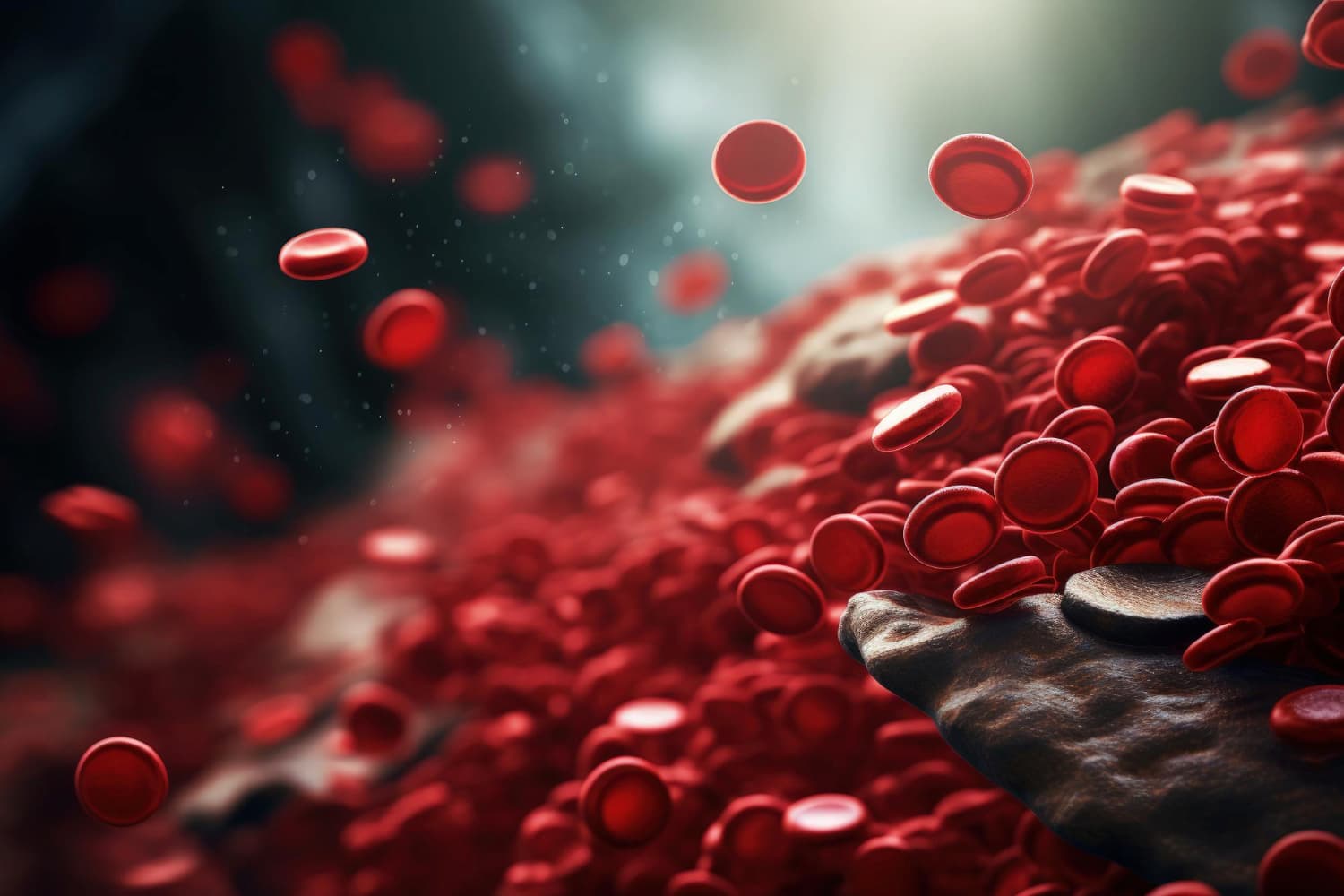
Iron deficiency is a dangerous condition leading to serious neurological and skin symptoms.

Phosphorus is a mineral element that supports bone health, nervous system function and also energy metabolism.
